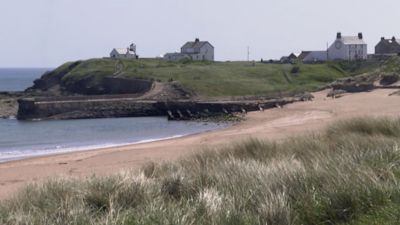Bathing water season begins in the North East and North Yorkshire

Today marks the start of the bathing water season, when beaches across our region will see their water quality tested regularly.
The Environment Agency will carry out tests at 34 sites n the North East and nine in North Yorkshire until the end of September.
Any pollution warnings will be issued via the Government agency's website. Signs will also put up by local councils at these swimming locations to inform bathers about any possible dips in quality, which can be caused by issues like rainfall, wind and high tides.
In the autumn the Department for the Environment, Farming and rural Affairs (Defra) will classify each site as 'sufficient', 'good', 'excellent' or 'poor'.
At present 32 of the places monitored in the north east are classified as 'good' or 'excellent'. One site, Cullercoates, is 'poor' and another, Marsden, is 'sufficient'. In North Yorkshire, all sites have the top ratings.
More than £2.5bn has been spent over the last 30 years to help protect and improve bathing water but the agency is keen to stress that more needs to be done.
Its manager for the North East, Rachael Caldwell, said: “We have some fantastic bathing waters in the North East and we’re working hard to protect and improve them by collaborating with the communities, water companies and businesses that can have an impact on improving local water quality.
“There’s a role for us all as individuals to be mindful of what we flush down the loo and what we leave on the beach.”
Environment Agency Chair Emma Howard Boyd added: “Before the pandemic, coastal tourism in England generated £13.7bn , supported 10,000 tourism-related jobs with 15 to 20 per cent of employment in coastal locations linked to tourism, in some places over 50 per cent.
"Public confidence in bathing water quality is key to the tourism industry as well as people’s health and wellbeing.
"We monitor sites and provide pollution risk forecasting at over 170 sites throughout the bathing water season so people understand the local situation.
“Targeted regulation and investment over several decades on the coast have driven significant improvements to bathing waters, but there is work to do inland.
"Water companies, industry and farmers need to meet regulatory requirements or face legal action, and there are small steps we can all take to help.
"For example by never flushing away wet wipes or plastic products like nappies so they don’t end up in the water.